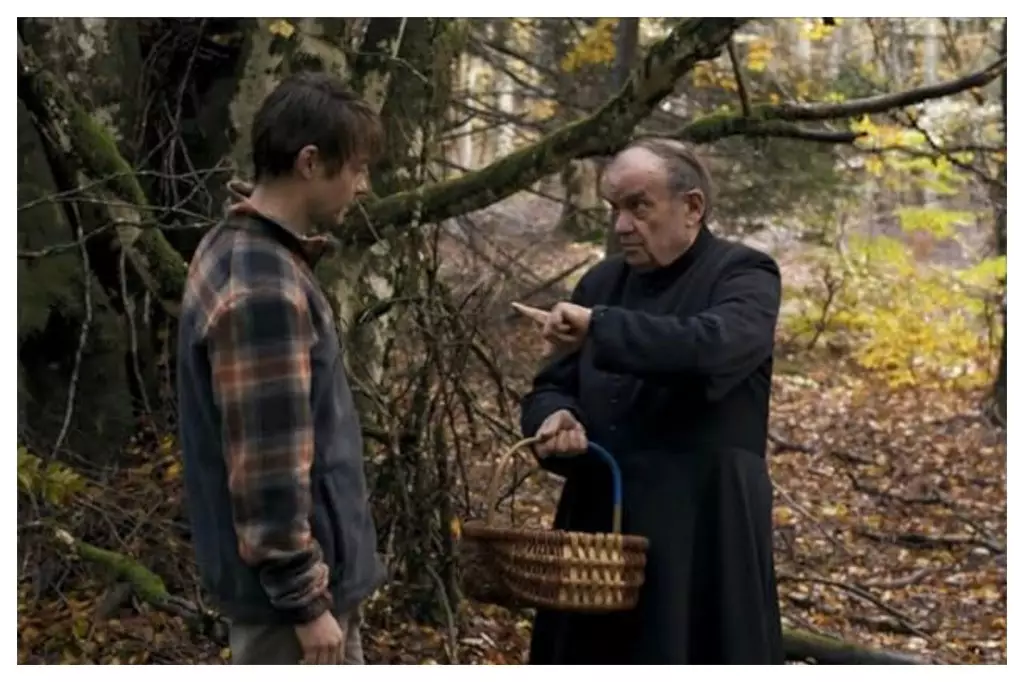Alain Guiraudie’s “Misericordia” is not merely a film; it is a provocative exploration of the darker aspects of human relationships, ambition, and the lengths one will go to in order to belong. As the film embarks on a five-city U.S. tour, including major cities like New York, Los Angeles, and San Francisco, audiences are offered not only a story but a mirror reflecting the complexity of their own desires and morals. The film’s debut at the Cannes Premiere section, coupled with its impressive roster of awards, signals a project stamped with both artistic ambition and visceral storytelling.
The Enigmatic Protagonist: A Baker with a Biting Bite
Félix Kysyl’s portrayal of the seemingly benign baker who returns to his small hometown is anything but predictable. Veiled in layers of subtext, his character offers a disquieting blend of charm and menace. By weaving himself into the fabric of his late mentor’s family, the protagonist presents a facade of loyalty while harboring tumultuous intentions that disturb the status quo. This duality is one of the film’s greatest strengths, prompting viewers to reconsider their perceptions of trust and betrayal. The tension escalates when confronted by the jealous son (Jean-Baptiste Durand), suggesting that familial love is often tainted by competition and malice, raw emotions that resonate deeply within any small community.
More Than Just a Narrative: A Comment on Society
“Misericordia” is a condemnation of complacency within societal structures. Set against the backdrop of a seemingly tranquil small-town life, the film exposes the rotten core of human ambition and desire. Here, the emphasis lies not just on individual narrative arcs but on a larger commentary about how characters play a role in a dysfunctional society. The juxtaposition of trivial small-town exchanges with the burgeoning undercurrents of violence and eroticism serves to elucidate the fragile nature of civility. The seemingly idyllic life quickly unravels, revealing the lurking monstrosities that accompany unfulfilled desires.
The Power of Representation and Artistic Vision
Notably, Guiraudie has carved a niche for himself in examining human sexuality through a compelling lens. His previous works have earned their acclaim, paving the way for a renewed appreciation of avant-garde cinema that challenges societal norms. The film’s retrospective on Criterion Channel, featuring other works like “Stranger By the Lake,” is a testament to his prowess in the realm of character-driven narratives. Guiraudie’s ability to provoke thought and evoke emotion makes “Misericordia” not just a film but a philosophical inquiry into our very nature.
Anticipation and the Importance of Discourse
As “Misericordia” sweeps into U.S. theaters, it also ushers in discourse—discussions that are crucial in an era where complexities of human emotion are often simplified in mainstream films. Audience reactions to the film will undoubtedly vary, illuminating the diverse spectrum of interpretations attached to human behavior. And with the accompanying trailer featuring insights from influential filmmakers like Ari Aster and Claire Denis, the anticipation continues to build.
“Misericordia” marks a bold step in the cinematic landscape, offering not only entertainment but profound reflections on the very fabric of our existence. In its exploration of the human condition, it forces us to confront the uncomfortable truths of our desires and the consequences that follow.

